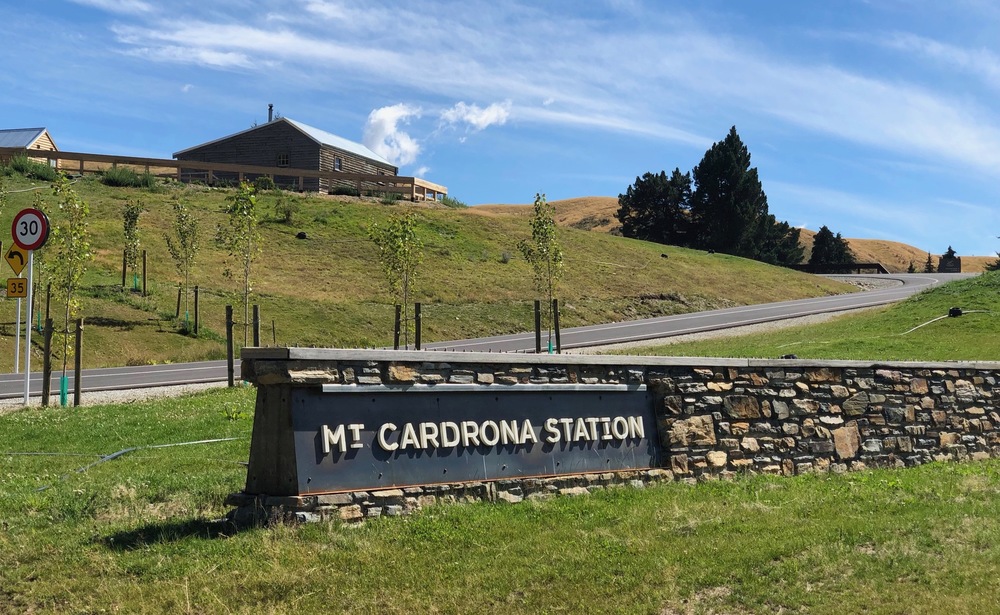Public water scheme gets green light
Diana Cocks
03 September 2022, 6:00 PM
 Council will proceed with plans to introduce a public water scheme to the Cardrona Valley.
Council will proceed with plans to introduce a public water scheme to the Cardrona Valley.The green light has been given for a joint venture public drinking water scheme at Cardrona despite considerable public opposition to it and a spirited effort to have the decision deferred.
At last week’s council meeting (September 1) a majority of Queenstown Lakes District (QLDC) councillors voted in favour of a recommendation to approve an additional investment of $9.1M in the proposed public water scheme, increasing the total capital investment for the project to $17.2M.
The decision was made despite ongoing opposition from Cardrona residents. Council received 38 public submissions, 29 of which opposed the joint venture, citing unaffordable costs and satisfaction with their existing private water service, among other reasons.
In addition to council’s $17.2M investment in the scheme, Cardrona residents connecting to the new public water scheme will also be required to pay at least $16,490 per dwelling in development costs, with the potential these costs could increase in the future to recover debt.

Cardrona’s new public water scheme will be a joint venture between QLDC and Mount Cardrona Station.
Based on these concerns and others, councillor Niki Gladding proposed an alternative motion (seconded by Niamh Shaw) to effectively defer the decision until after the upcoming elections in order to be better informed.
Niki said there were still unanswered concerns regarding costs and Cardrona’s growth predictions and suggested council was being hasty pushing for a decision now.
“I’d like to ensure council is doing its due diligence on this and making sure that it is affordable and is investing in the right place and for the right reasons,” she said.
She spoke of the potential impact on the proposed water scheme regarding the quantity of water available to Cardrona residents as one of the water consents had expired.
“We’ve lost a significant amount of water and we’re having to manage…the use of the water [which] will be severely restricted. I don’t think the community understands that,” she said.
Niamh raised the question of equity as the proposal allowed some residents to opt out of the public scheme but others were compelled to pay and join the scheme even though they had already signed contracts to connect to an existing private supplier.
Councillor Penny Clark spoke in support of the proposed scheme. She said the panel was concerned about the scheme’s financials but it had received further information which allayed some concerns.
“This is shovel ready,” she said. “We have an opportunity; we need to get moving.”
QLDC chief executive Mike Theelen said the joint venture between council and the private developer of Mount Cardrona Station (MCS) was fundamentally about providing Cardrona residents with a long-term, public water service and a deferral now would “effectively kill this potential scheme”.
MCS advised the hearings panel last month that if council did not proceed with the joint venture, it would still continue building a water treatment plant but would service only its own residents.
QLDC finance manager Stewart Burns advised councillors that factors such as the uncertainty of Three Waters reform and a 10-40 percent escalation in prices for capital works meant council would have to review its 10-Year Plan budgets but he was confident council could find the additional $9.1M by deferring other capital works projects.
Niki’s alternative motion did not receive majority support and was replaced with the original motion which was passed six votes to three (those opposed being Niki Gladding, Niamh Shaw and Glyn Lewers).
Cardrona Village is currently serviced by five small private water supply schemes each with permitted water take consents but the council said these existing schemes cannot provide sufficient capacity to supply the anticipated long-term demand in the village.
Due to Cardrona’s alpine environment and limited freshwater supply, the Otago Regional Council applies a “shrinking cap” policy which prohibits new potable water consent takes.
PHOTOS: Wānaka App





